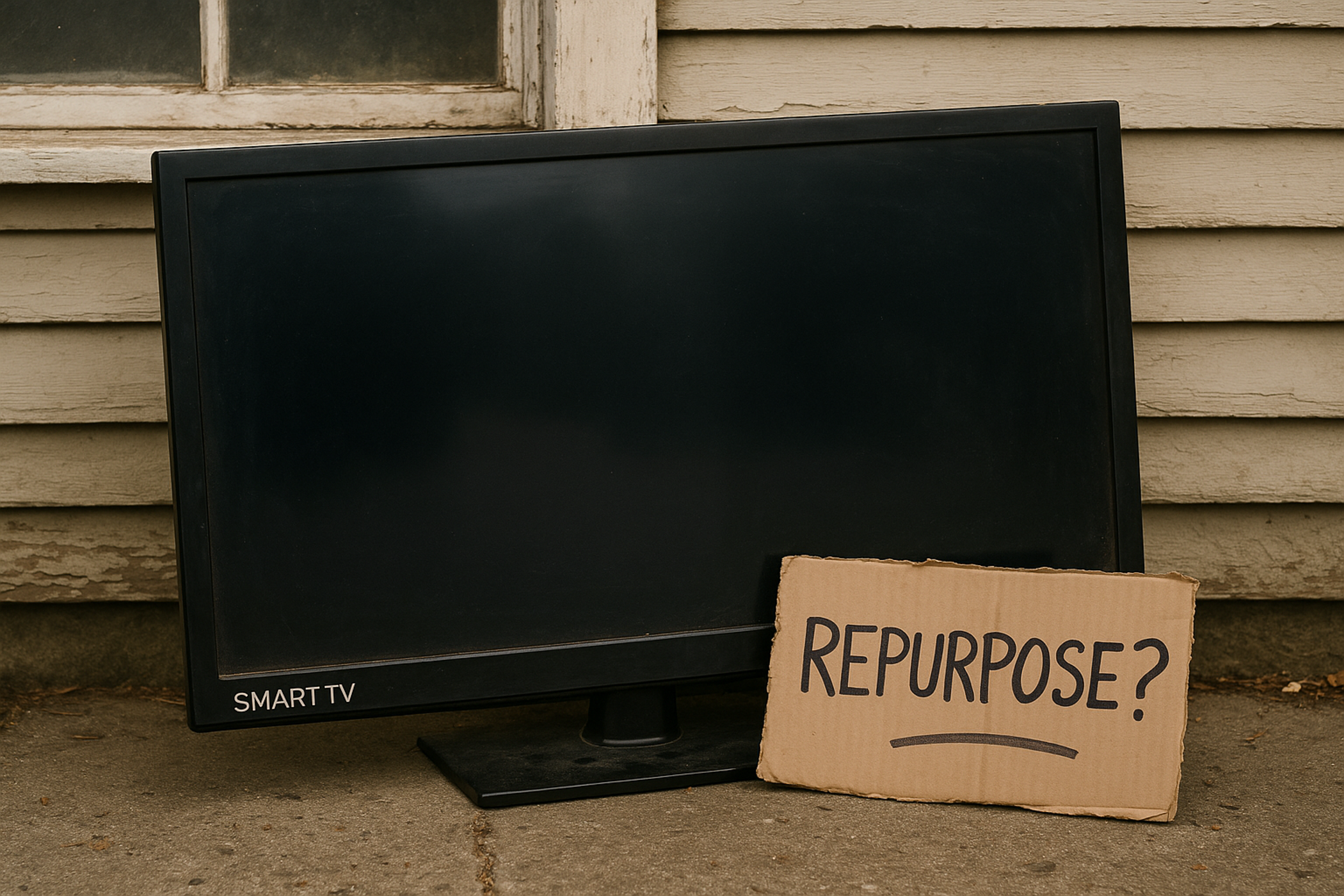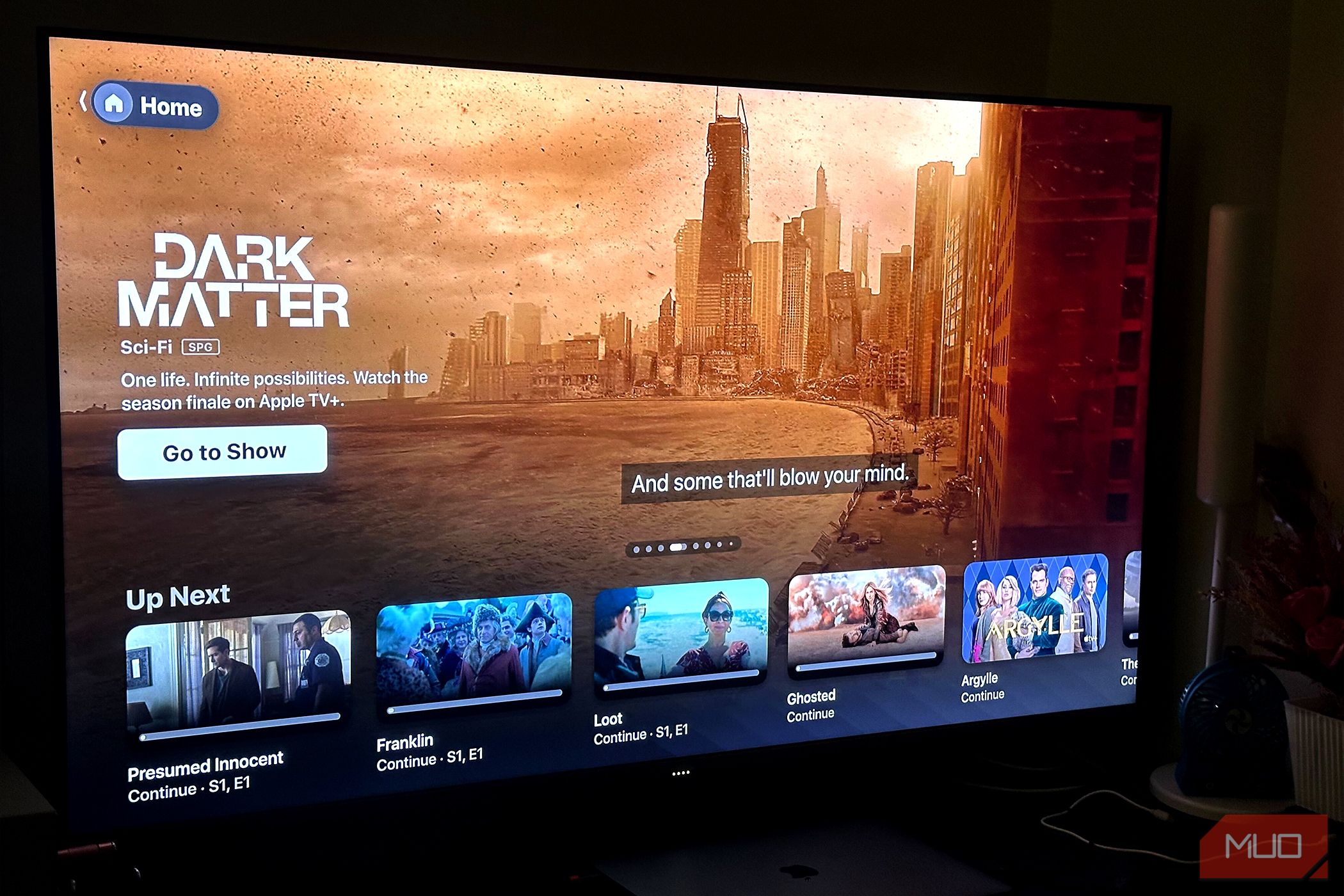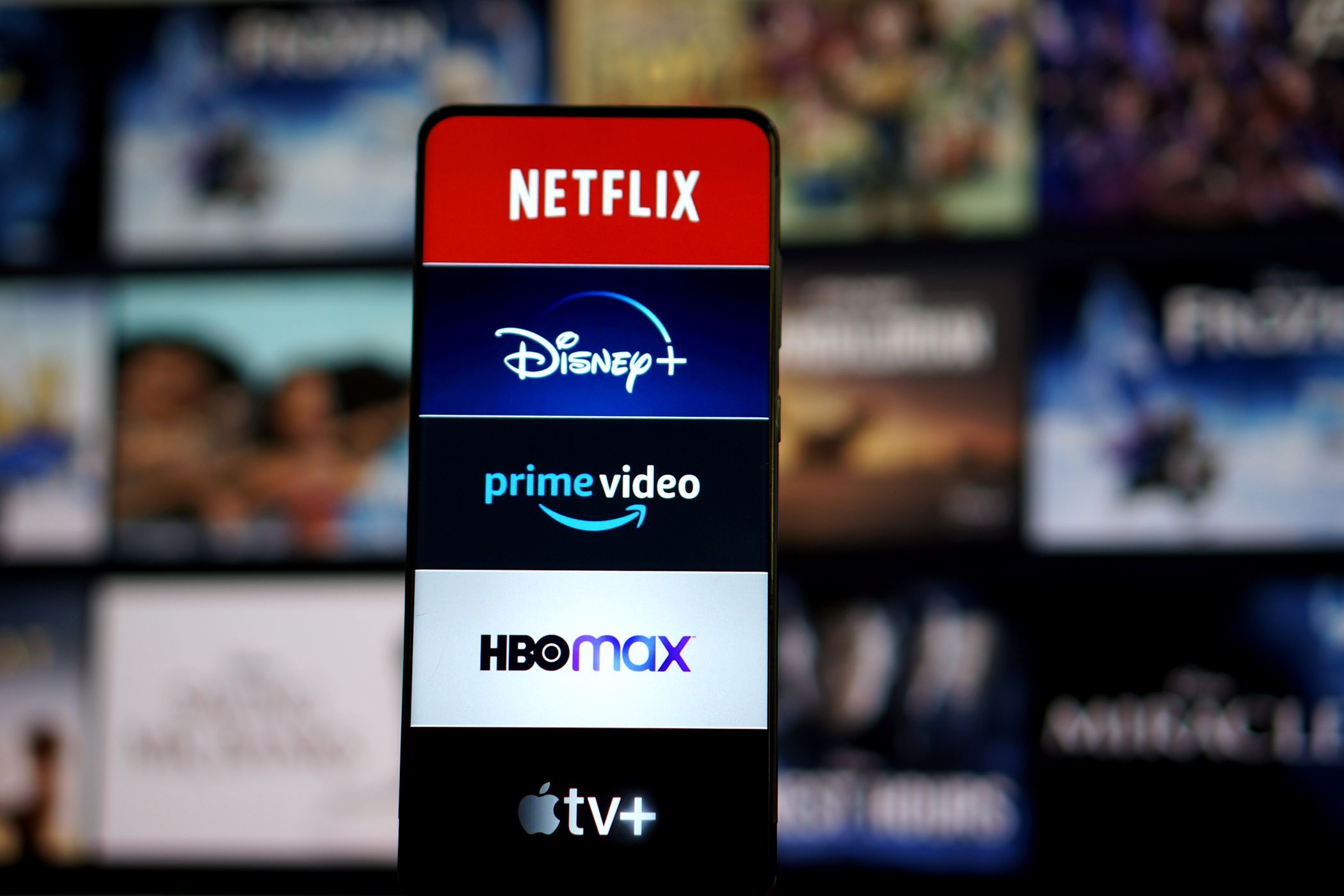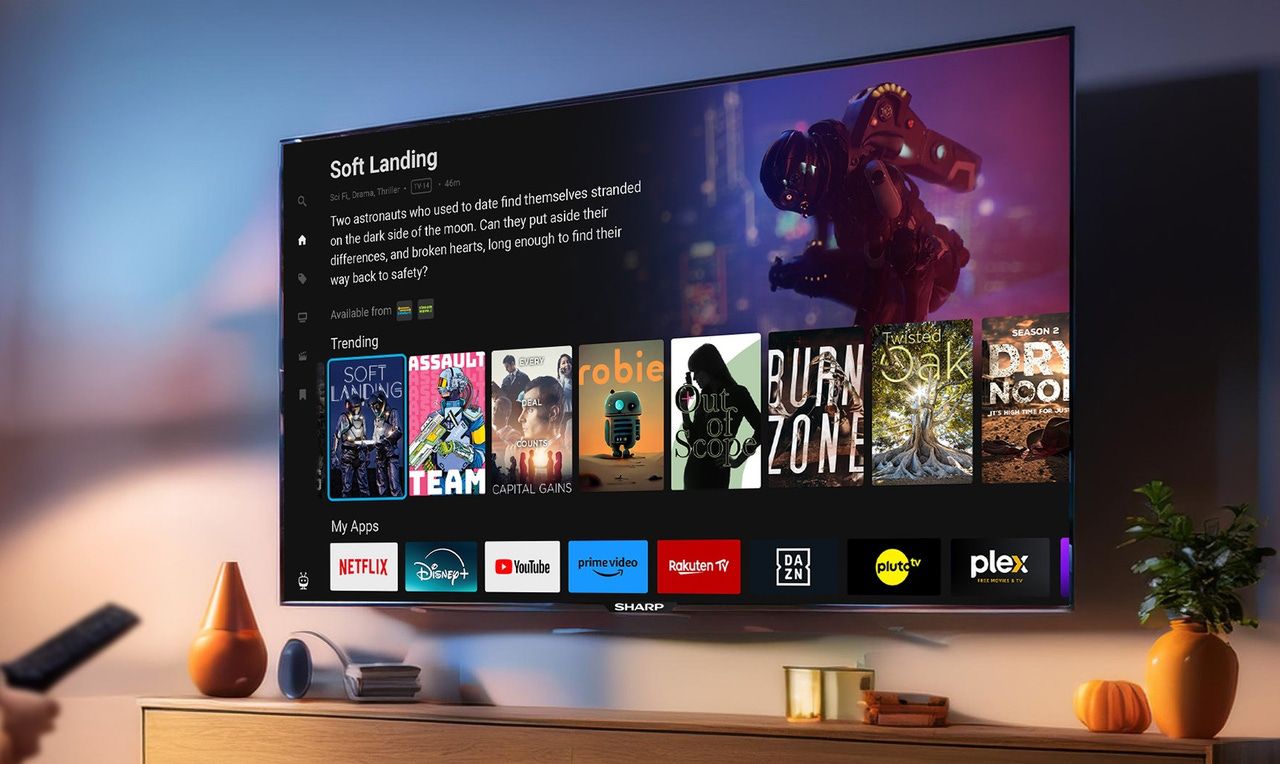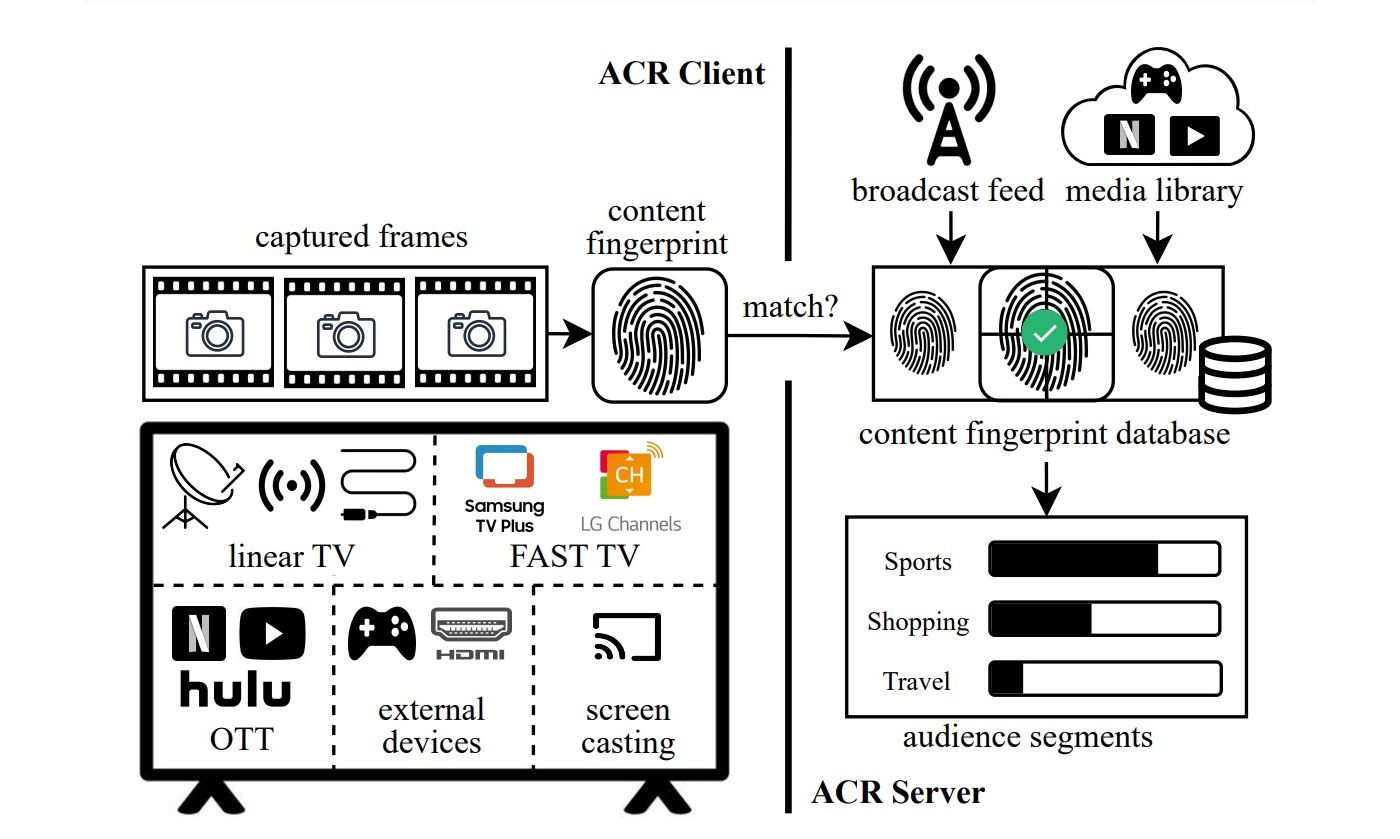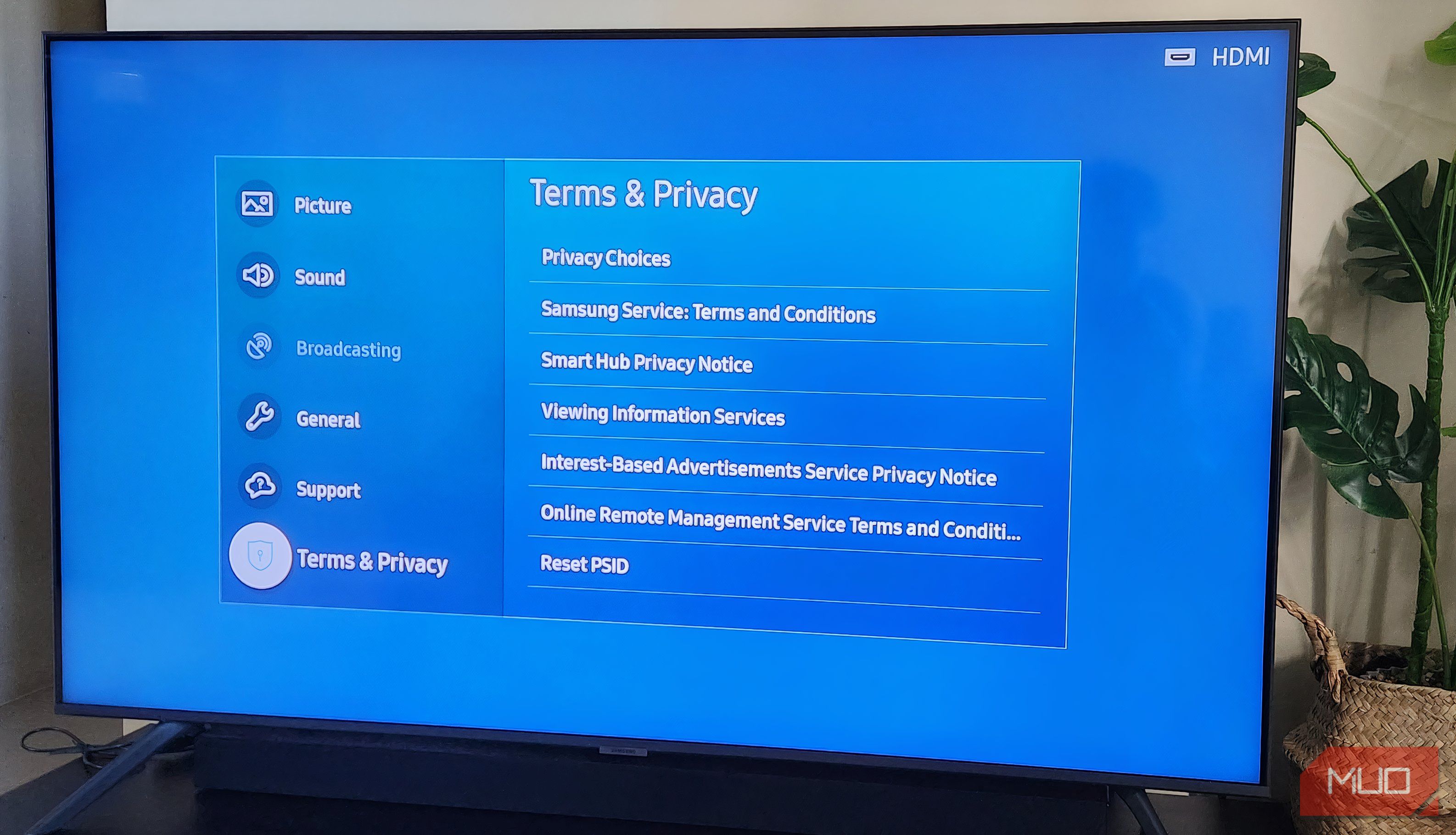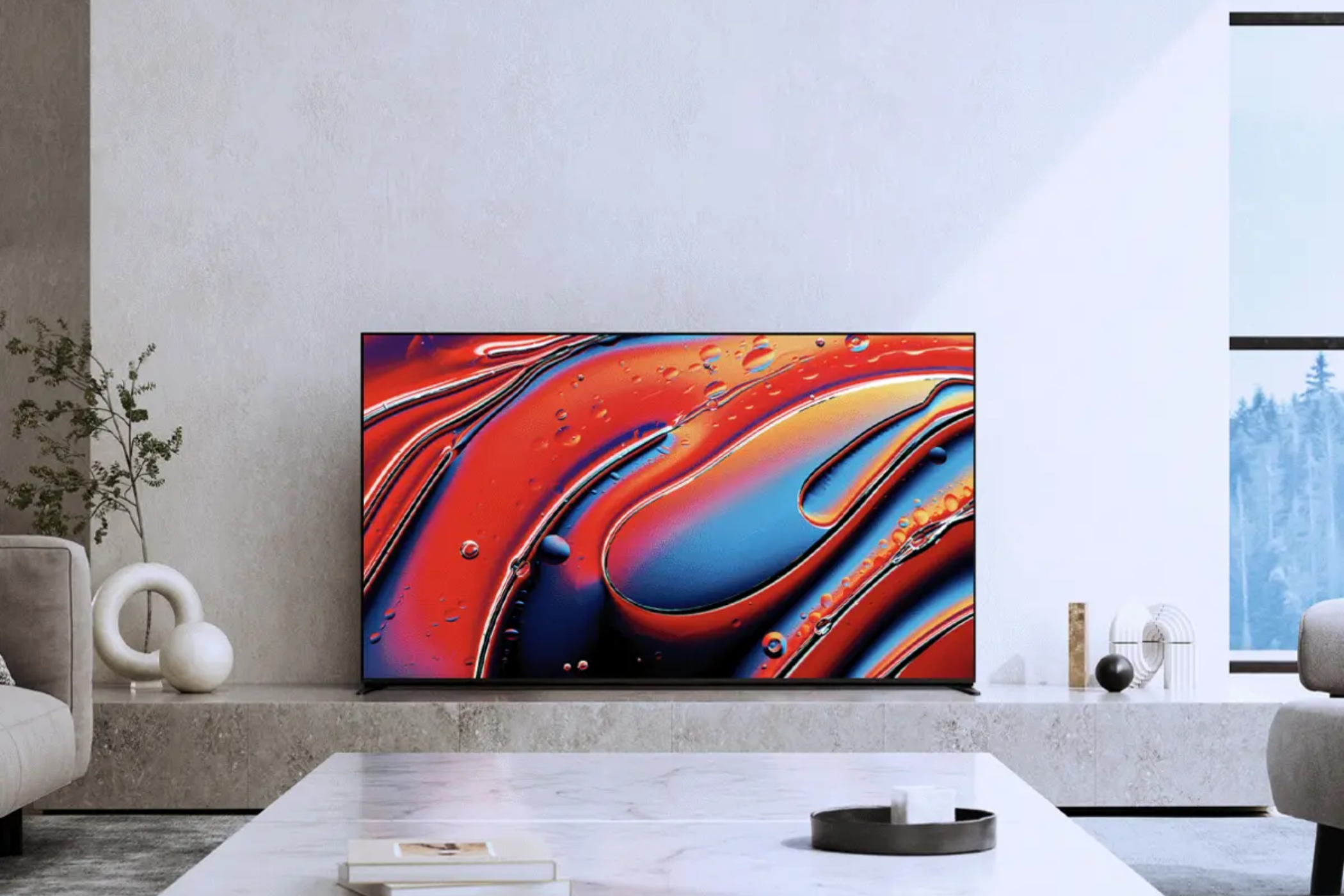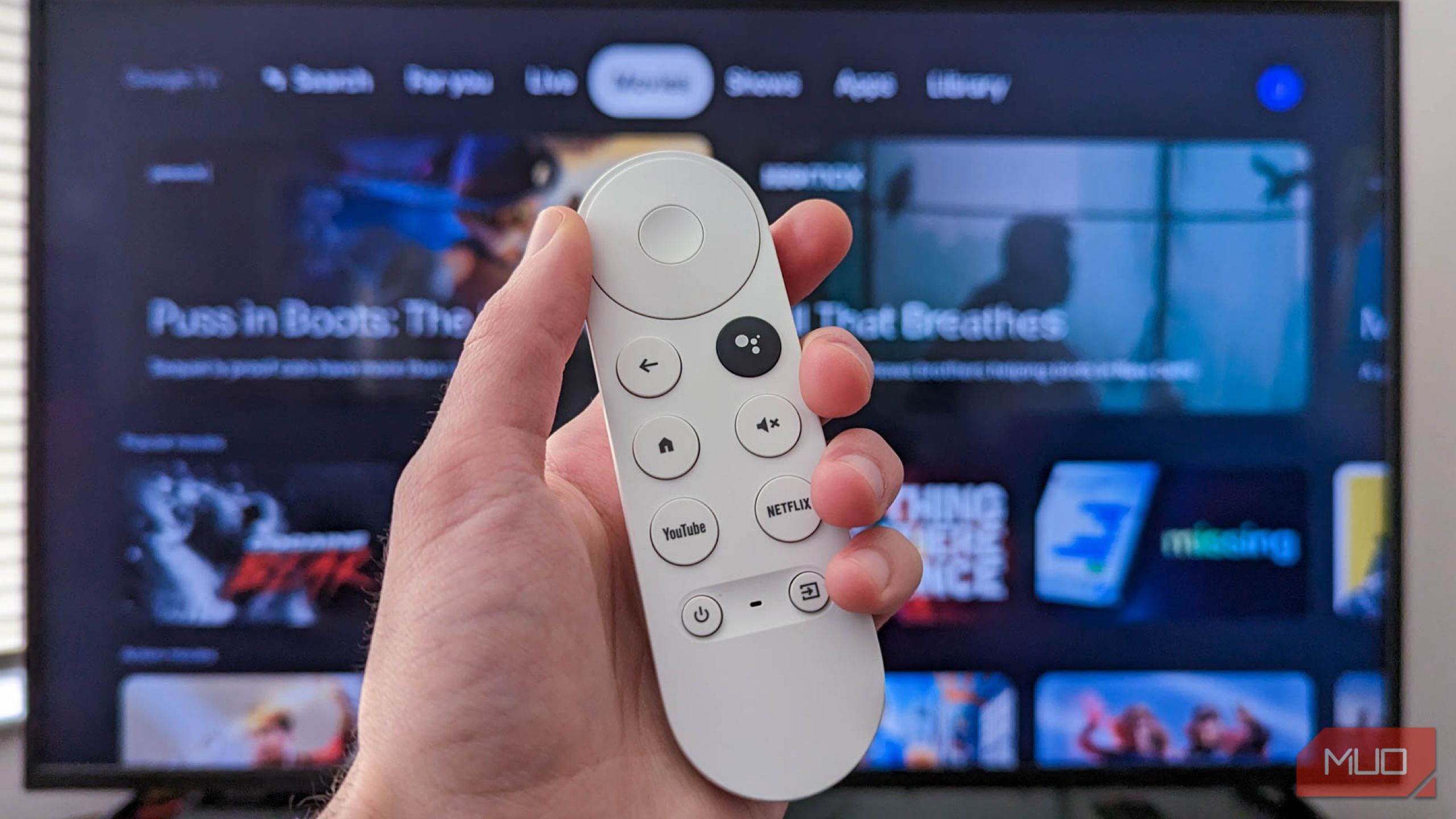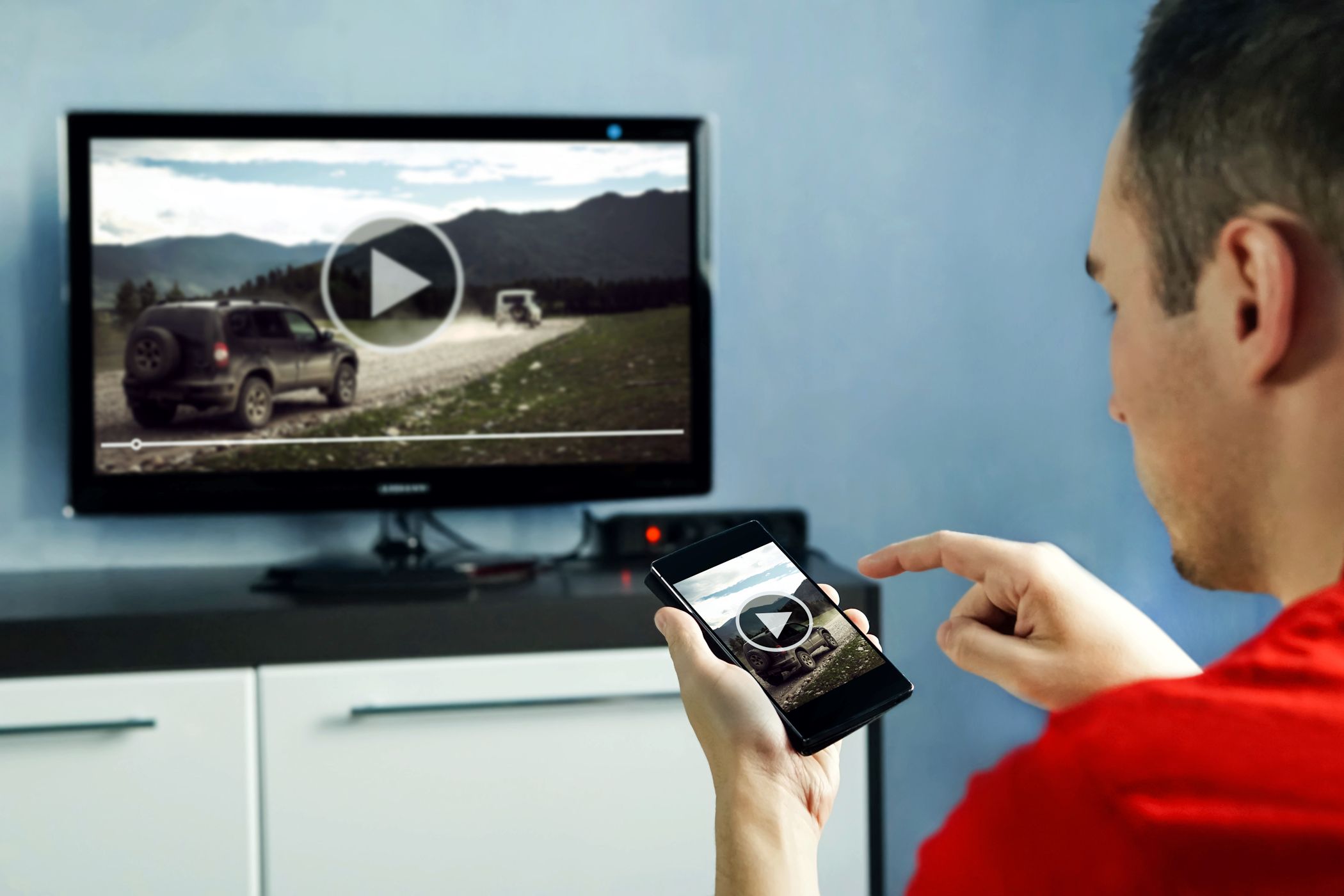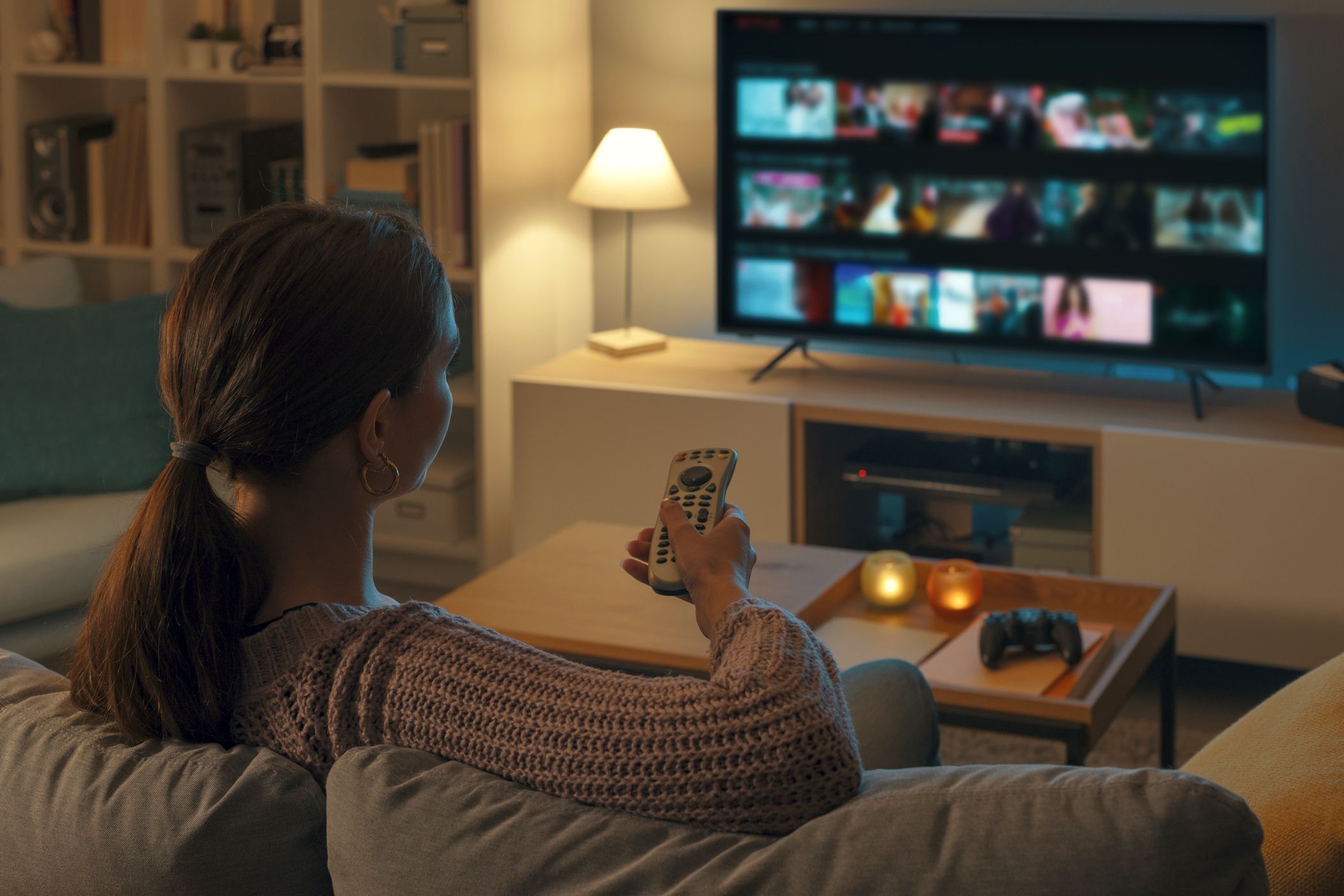I love the convenience of TV-on-demand services, but it wasn’t long before I realized that my smart TV was collecting and using my data. Unless you take some preventive steps, yours will be too.
When I Noticed My Smart TV Was Spying on Me
I never really thought about whether my smart TV was collecting data. However, it’s safe to assume that if a device is connected to the internet, it is guilty until proven innocent. After all, data collection and sharing are a form of currency in modern commerce.
I have a top-branded TV with a smart remote control, and I use it with an Amazon Fire TV Stick. I also have a second-generation Google Chromecast in the bedroom. I quickly realized that when it comes to information gathering, I have a large target on my back, as Google’s and Amazon’s devices are notorious for collecting data. Still, I paid little attention to the TV itself. I have, however, noticed a shift in my smart TV’s behavior patterns, and a cryptic app appeared unannounced.
It was possible that the app was malware, as it seemed to serve no purpose, and nothing was affected by its removal. Another possible symptom of information collection and sharing was an unusual spike in data usage around three months ago. These occurrences prompted me to investigate how my TV could potentially spy on me.
How Your Smart TV Can Spy on You
While TV manufacturers claim to chiefly use your data to improve their services, here are some ways in which your information can be extracted and used for various means or financial gain:
Collecting Data Based on Your Viewing Habits
Many smart TVs use Automatic Content Recognition (ACR) to track your viewing habits. They can even use non-streaming protocols, such as HDMI, to send data back to the manufacturer or share it with advertisers. Your TV can also build a profile of your viewing habits to create targeted ads that align with your interests. Even if I might find these services helpful, I still see it as a breach of my privacy.
Monitoring Your Microphones and Voice Assistants
If your remote control has a microphone for giving voice commands, then you are at risk of your smart TV listening to and recording your speech. Specific keywords, or “wake words,” can trigger the device to record and share your spoken information with cloud servers for processing.
Tracking Your Apps
Your smart TV can track your app usage, including which apps you use, what content you watch on those apps, and the time of day and duration you use them. While this information is used to provide better recommendations or improve services, it can also be analyzed and utilized for monetization purposes.
Monitoring Your Wi-Fi Network
Smart TVs are designed to work with other connected devices that share a Wi-Fi network, for example, for casting and file-sharing purposes. Your TV can build an inventory of connected devices around your home and log this data for sharing. It’s a good idea to properly secure your Wi-Fi network to safeguard your smart TV against spyware and other malicious programs and take steps to protect yourself against data gathering.
How to Protect Yourself Against Smart TV Monitoring
It’s a good idea to be mindful of how you can protect yourself against smart TV data gathering. You may wish to use some or all of the following methods to prevent it:
- Disable ACR: The first step in safeguarding your TV against data gathering is to disable Automatic Content Recognition in your TV’s settings menu. Look for Terms and Privacy, Privacy Settings, Viewing Data Collection, or a similar option. You should then be able to select the option to turn it off.
- Disable voice recognition: The same goes for voice recognition on your smart remote. If you don’t use it, simply turn it off. This will prevent it from listening in for wake words and potentially using your spoken information.
- Check privacy policies: It’s a good idea to opt out of data collection wherever you are given the option to do so. More often than not, you can remove yourself from harm’s way by simply reading the small print and checking (or unchecking) the appropriate boxes.
- Don’t connect to the internet: A smart TV is not “smart” if you never go online. However, if you primarily use external devices and you use your smart TV offline, then there’s no point in leaving yourself vulnerable to hackers and data collection. As extreme as this may sound, it is the only way to properly secure yourself from outside influences and data gathering.
For many of us, data collection is not a significant inconvenience or a threat to our quality of life. For me, the issue is a moral one. I don’t mind my TV manufacturer or streaming service provider making helpful suggestions or using my data to improve the services I pay substantial amounts for each month. However, if my data is being sold to third parties, I would like to know when and for what reason.
We have given up much of our privacy for the sake of online convenience. I’d prefer it if, at the very least, while I’m watching my favorite TV shows, my TV isn’t watching me back.
